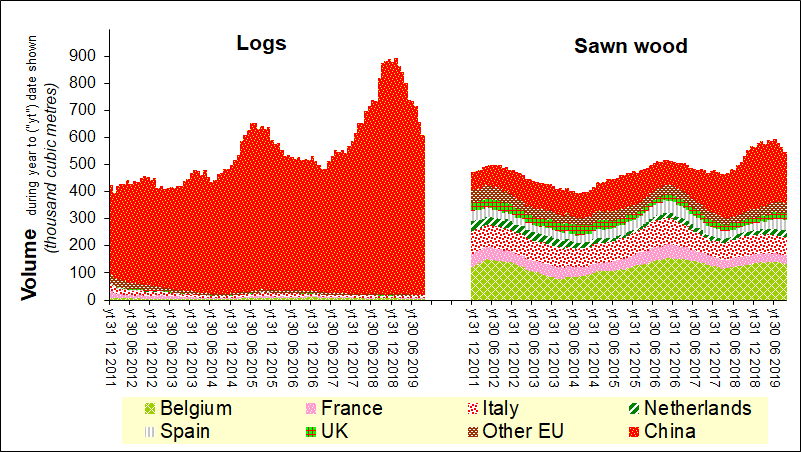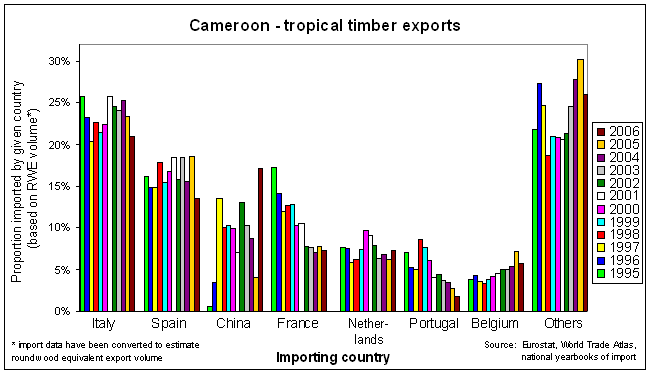|
|
||
|
|
||
|
Cameroon China and the EU's imports of timber from Cameroon (based on China Customs and Eurostat) |
||

|
||
|
Whereas Italy's imports rose in parallel with the total during the 1990s, those to Spain increased less rapidly. China became the dominant East Asian buyer during the late 1990s - it has been the principal importer of 'Cameroonian' logs since 1997 and its imports overall were third largest behind those of Italy and Spain during 2000. Analysis of logging companies by nationality is largely irrelevant - foreign subcontractors log on behalf of some Cameroonian concessionaires and the friends and family of Cameroon's ruler have business links with a number of foreign logging companies (some of which are better described as local than as foreign). Most commentators (including senior government officials) believe that Cameroon's forests will only support a large timber industry for five or so more years unless, in the nearer term, production is greatly reduced and current practice is radically improved. The vested interest of key military figures in maintaining the current status quo and the corruption of the judiciary make it unlikely that Cameroon will be able to halt the export of illegally produced timber without substantial external support. The (not very powerful) Forest Crimes Monitoring Unit established in 2000 has had a slight impact on governance. It would be to China's advantage if (as it should) the EU were to sanction its states (particularly those in southern Europe) for importing illegal timber from Cameroon (and, to prevent fraud, also from Congo Brazzaville and the Central African Republic). A ban prohibiting imports of illegal timber ought to be introduced and enforced globally. Such a ban would best be applied at the ports of export and, to help shipping companies negotiate with suppliers of illegal timber, should threaten punitive penalties on shipping companies for loading illegal timber. If, as some argue, most timber exports have been ordered and/or partly paid in advance, then chain of custody information for the supply chain upstream from the port of import back to the forest should be readily available - especially if the order is for particular species. If timber is produced and/or shipped on a speculative basis, or if the order is for undifferentiated species, then chain of custody information may be less readily available. Far more attention is being given to sustainable forest management and its certification than robust chains of custody and their certification. Both are important. The latter requires little cost and could help provide the psychological framework needed prior to widespread adoption of SFM. Further information: |
||
|
Copyright
globaltimber.org.uk
|

